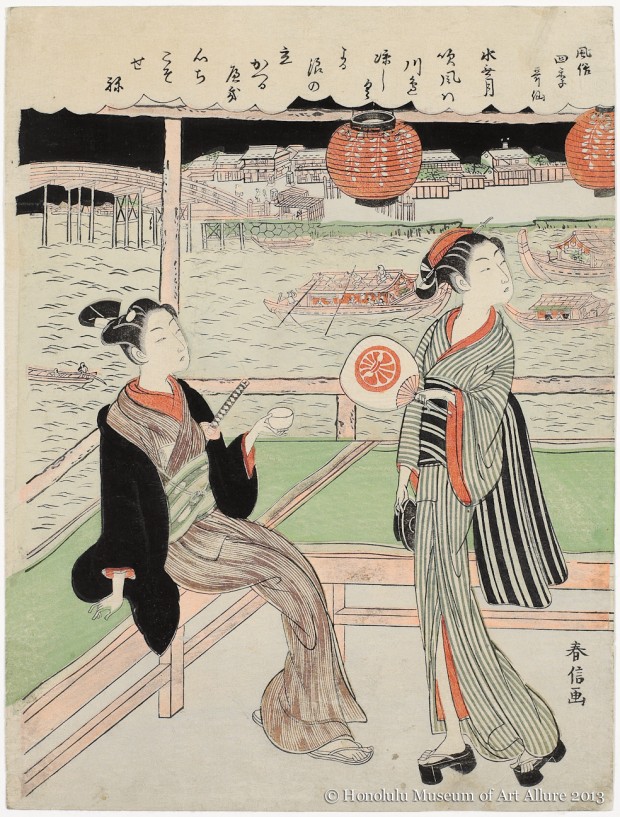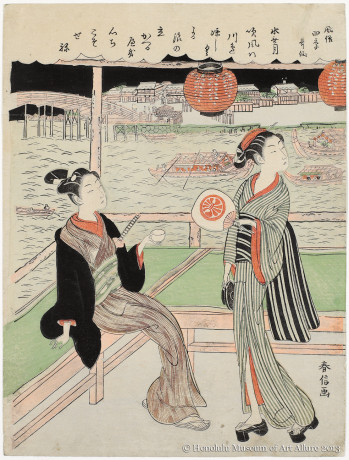Suzuki Harunobu (1725?-1770)
Sixth Month, from the series
Popular Versions of Poetry Immortals
in the Four Seasons
Japan, Edo period, c. 1768
Woodblock print; ink and color on paper
Gift of James A. Michener, 1959
Honolulu Museum of Art
(14839)
The wind blows the cooling riverside,
I too should leave with the rebounding waves;
Ah, but it is so very pleasant.
The setting is a teahouse by the Sumida River, with the Ryōgoku Bridge visible in the background on the left, and pleasure boats cruising along the river at night, providing relief from the intensity of summer. A waitress has just served a cup of tea to her customer, and she holds a lacquered cup stand to her side as she turns away, giving him a chance to gaze upon her unobserved (his sight line suggests he is looking at the exposed nape of her neck, traditionally an area charged with eroticism). Both are dressed in fashionably striped light cotton summer kimono, and the waitress in addition holds the stylish accessory of a fan with the crest of the actor Segawa Kikunojō II, then at the height of his popularity.
While the seasonal association indicates the heat of summer passion, the poem adds an additional nuance to imply that his attentions are fleeting, and he will soon move on from this momentary infatuation to other conquests.
View info on museum database (enabled through support by the Robert F. Lange Foundation)


